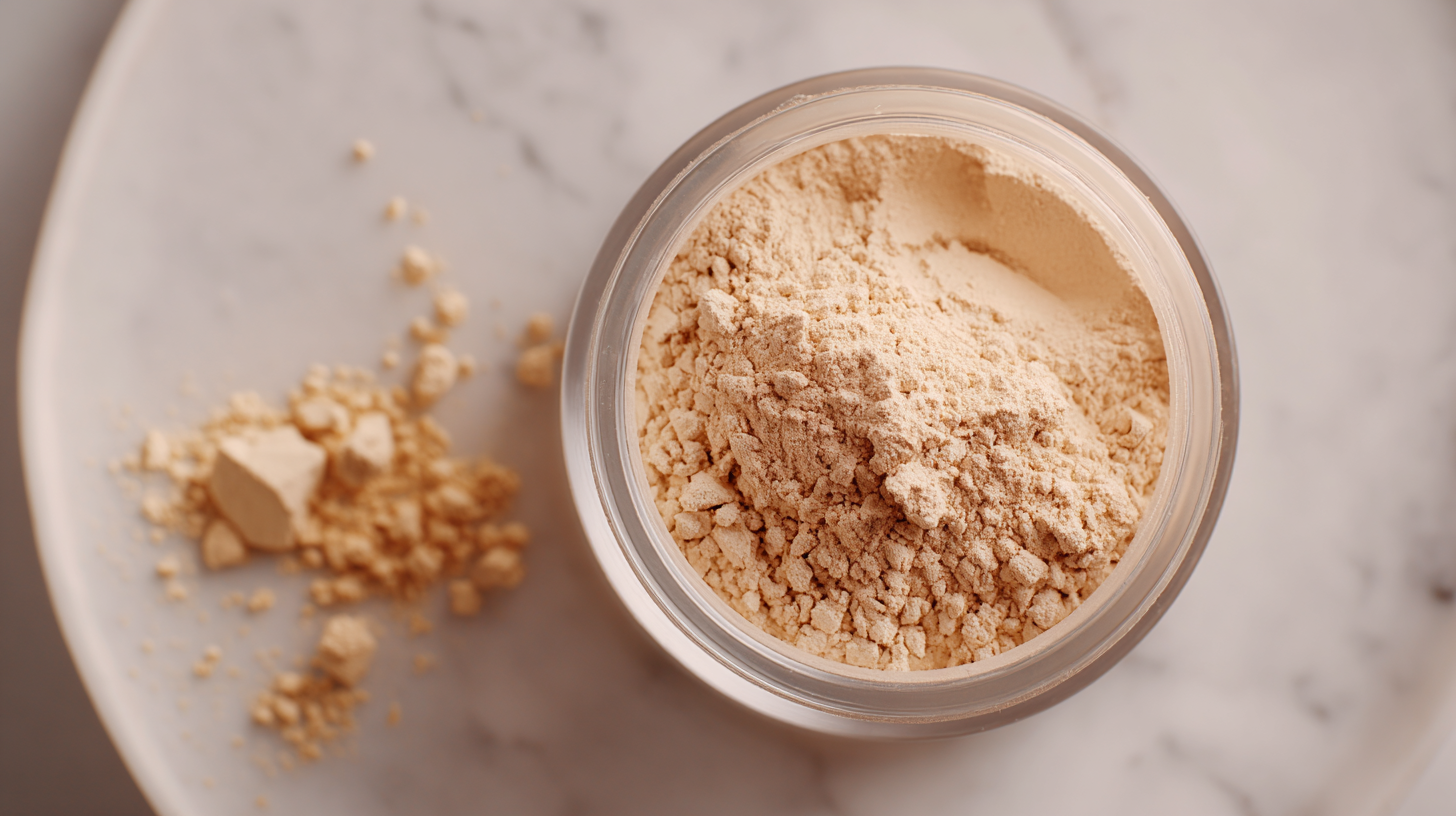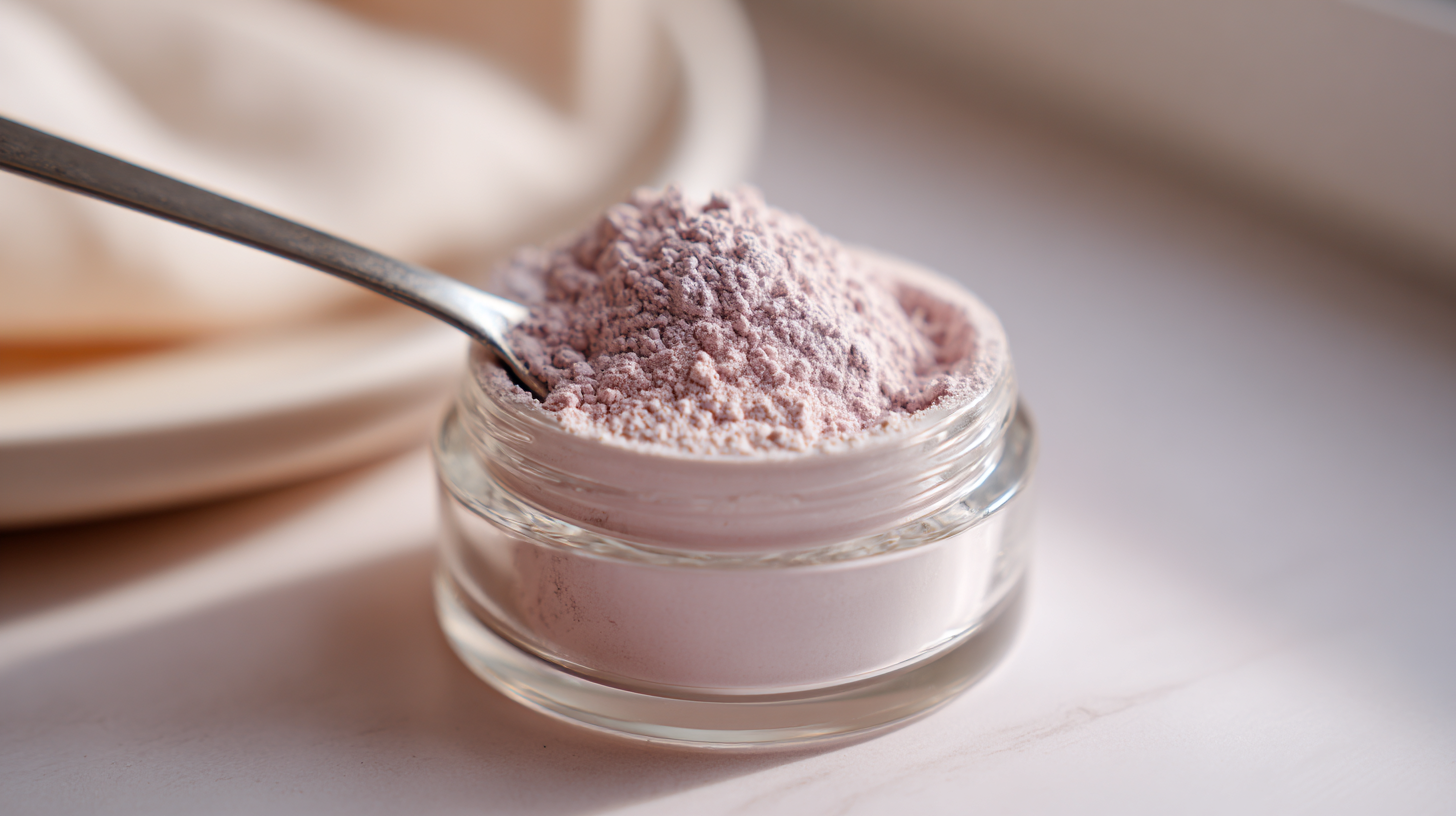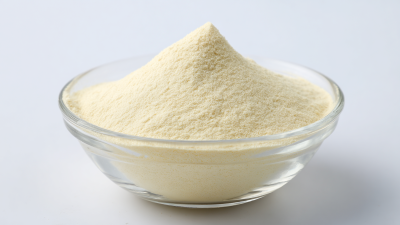In the ever-evolving world of skincare, incorporating new and effective ingredients can be daunting. One such powerhouse ingredient is Retinol Powder, known for its remarkable benefits in promoting youthful skin. As a derivative of vitamin A, Retinol Powder plays a critical role in stimulating cell turnover, minimizing fine lines, and enhancing skin texture. However, the effectiveness of Retinol Powder largely depends on how it is integrated into your existing skincare routine. This guide is designed to help you navigate the process of incorporating Retinol Powder seamlessly into your regimen, ensuring you achieve maximum benefits without overwhelming your skin. From understanding the optimal concentration to finding the right combination of products, mastering the art of using Retinol Powder can transform your skincare experience and deliver the radiant results you desire.

When selecting a retinol powder for your skincare regimen, it’s crucial to consider your specific skin type to maximize its effectiveness. According to a report by the American Academy of Dermatology, individuals with oily skin often benefit from a lightweight retinol formulation that can help regulate sebum production without clogging pores. Look for retinol powders that are encapsulated in a non-comedogenic base, which enhances penetration while minimizing potential irritation.
For those with dry or sensitive skin, a gentler formulation is advisable. A study published in the Journal of Clinical and Aesthetic Dermatology suggests opting for retinol powders blended with hydrating agents like hyaluronic acid or glycerin. These ingredients help to mitigate the drying effects of retinol, enabling users to reap its anti-aging benefits without compromising skin hydration levels. Tailoring your choice of retinol powder to your skin type not only optimizes results but also fosters a more enjoyable and sustainable skincare routine.
When incorporating retinol powder into your skincare routine, understanding the ideal concentration is crucial for achieving maximum benefits. Research indicates that concentrations between 0.1% to 1% are optimal for efficacy without significant irritation for most skin types. In a study published in the *Journal of Clinical and Aesthetic Dermatology*, participants using a 0.5% retinol formulation reported substantial improvements in skin texture and fine lines after just 12 weeks of consistent use. This demonstrates that even lower concentrations can yield notable results, particularly when gradually introduced.
It's essential to note that skin sensitivity varies from person to person. A report from the American Academy of Dermatology found that individuals with sensitive skin may benefit from starting with a lower concentration, such as 0.1%, and gradually increasing as their skin builds tolerance. Moreover, a concentration of 0.75% has been found to balance efficacy and irritation, making it a suitable option for many users looking to enhance their skincare routine without adverse effects. By carefully selecting the right concentration of retinol powder, you can effectively target concerns such as fine lines, uneven tone, and texture while minimizing the risk of irritation.
Incorporating retinol powder into your skincare routine can significantly enhance your skin's appearance if mixed correctly with other products. Start by selecting a base product, such as a moisturizer or serum with a gentle formulation. Studies suggest that combining retinol with hydrating ingredients like hyaluronic acid can reduce irritation while boosting efficacy. Mix a small amount of retinol powder, typically 0.5% to 1%, into your chosen base, ensuring an even consistency before applying it to your face.
Tips: Always perform a patch test when introducing retinol powder to your regimen. This helps prevent potential allergic reactions or irritation, especially for those with sensitive skin. Additionally, layer your retinol mixture in the evening routine, as retinol is light-sensitive and works best overnight when your skin is in repair mode.
When applying, start with two to three applications per week, gradually increasing frequency as your skin adjusts. The American Academy of Dermatology recommends a slow introduction to retinol to minimize side effects and maximize benefits, which include improved skin texture, reduced fine lines, and enhanced radiance.
Incorporating retinol powder into your skincare regimen requires a gradual approach to avoid irritation while maximizing its benefits. Start by mixing a small amount of retinol powder with a gentle moisturizer, applying it to your skin two to three times a week. This method allows your skin to acclimate to the active ingredient without overwhelming it. Pay attention to how your skin reacts, and if there are no signs of irritation such as redness or peeling, you can slowly increase the frequency of application.
Once your skin has adjusted, consider layering the retinol powder with other beneficial products. For example, using a hydrating serum prior to applying the retinol can help mitigate potential dryness. Additionally, introducing retinol on alternate nights while maintaining a consistent routine will allow your skin to reap the anti-aging benefits more effectively without compromising its barrier. Always remember to apply sunscreen daily, as retinol can increase UV sensitivity, ensuring that your skin stays protected while you enjoy the enhancements to your skincare routine.

 When incorporating retinol powder into your skincare routine, it's essential to be aware of common mistakes that can hinder its effectiveness. One frequent error is using too much product. According to a report by the American Academy of Dermatology, higher concentrations of retinol do not necessarily yield better results and can lead to increased irritation. A pea-sized amount is often sufficient for the entire face, allowing your skin to adapt gradually.
When incorporating retinol powder into your skincare routine, it's essential to be aware of common mistakes that can hinder its effectiveness. One frequent error is using too much product. According to a report by the American Academy of Dermatology, higher concentrations of retinol do not necessarily yield better results and can lead to increased irritation. A pea-sized amount is often sufficient for the entire face, allowing your skin to adapt gradually.
Another critical mistake is failing to apply retinol at the right time. Research published in the Journal of Clinical and Aesthetic Dermatology highlights that retinol is most effective when applied in the evening, as exposure to sunlight can degrade its potency. Moreover, pairing retinol with harsh ingredients, like alpha hydroxy acids (AHAs), can exacerbate irritation. A study by the International Journal of Dermatology suggests that introducing new active ingredients gradually can help minimize irritation while maximizing the benefits of retinol powder. Always consider the condition of your skin and ensure a balanced approach for the most effective results.






